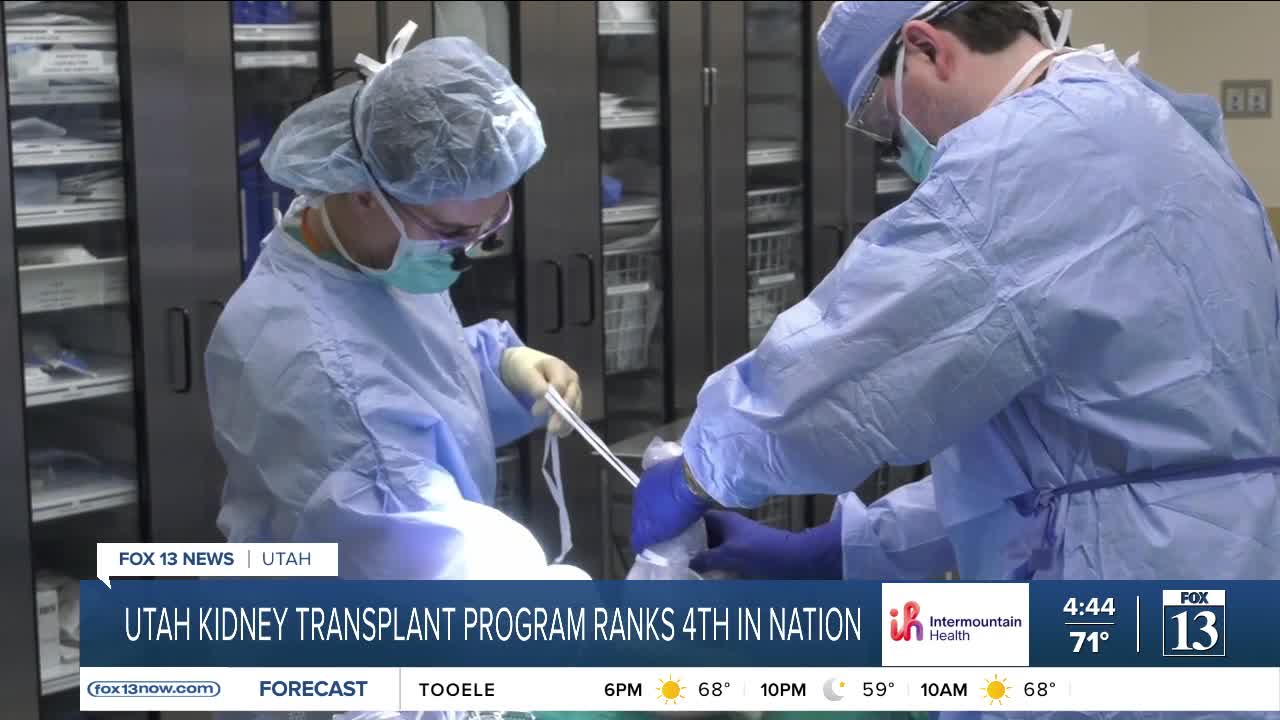Intermountain Health’s kidney transplant program is now ranked fourth in the nation, recognized for having one of the shortest wait times in America. On average, patients wait just 109 days for a kidney transplant — compared to as long as five years in other parts of the country.
Additionally, the Intermountain Health live transplant program has been ranked third in the nation, according to the most recent update from the national Scientific Registry of Transplant Recipients (SRTR).
Receiving a kidney or liver transplant can be truly life-changing.
“If you get a kidney transplantation, it should on average double your life expectancy,” said Dr. Donald Morris, medical director of the kidney transplant program at Intermountain Health.
Dr. Morris describes kidney transplantation as both a team effort and a precision process that not only saves lives but transforms them.
“More importantly, it should improve your quality of life and also the quality of life for your loved ones and your caregivers,” he said.
Morris credits the program’s success to the expertise and dedication of his team.
“It’s all these things on a day-to-day basis that people are empowered to do — at the top of their license, at the top of their game — and that’s really, I think, the reason we’ve been so successful,” he said.
Advancements in the science of transplantation have also helped make kidney transplants safer and more available than ever before.
“The availability of new technologies and high-resolution tissue typing has really been a game changer in determining how well a donor and recipient are matched,” Morris said.
He explained that modern transplant medicine is no longer about forcing compatibility, but understanding what the body can accept.
“If we try to muscle things in, then what ends up happening is we over-immune-suppress someone’s immunity,” he said. “One way I think of it is we blindfold the immune system and we sneak in the new organ — and then we gradually remove the blindfold, but not to the degree that the immune system will figure out, ‘Wait a minute, this kidney doesn’t belong here.’"
Despite all the advances, the biggest challenge remains the shortage of donor kidneys.
Intermountain works to shorten wait times by helping patients take advantage of national programs that expand kidney availability.
“If you bring someone that’s healthy enough to donate a kidney, it doesn’t matter if they match you,” Morris said. “We will put you into a national paired exchange program. That person will donate on your behalf, and then you will get a kidney in return.”
Still, Morris said too many usable organs go to waste — and that’s something anyone can help change.
“Discarded organs that would have been good transplant material are still a big problem in transplantation overall,” he said. “So checking the box on your driver’s license and telling your loved ones you’d like to be a donor is as important as ever.”




